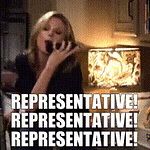Gen Z are as young as 13 and as old as 28 (born between 1997 - 2012) and they’re is already challenging the status quo, whether it's the new words they add to our vernacular, bringing their parents to interviews, being fired for their work ethic, or instating heads of state through social media.
Understanding how they communicate, as speakers, and what they need to hear, as interlocutors, is going to be key to breaking into this target segment. Everyone acknowledges this. But have you ever looked at it from a linguistics angle? The words they use and how they see the world through that language reveals something profound about shifting power dynamics in our economy.
While businesses scramble to understand Gen Z behaviour through traditional market research, they're missing the linguistic revolution that's actually driving these changes. The words Gen Z uses, the speech communities they form and the authority patterns embedded in their language are reshaping everything from financial services to educational institutions.
It feels like they speak a different language because they are.
The Language of Financial Identity
Listen to how Gen Z talks about money and you'll hear something fundamentally different from previous generations.
They don't "budget", they enter their "budgeting era."
They don't "save money", they "secure the bag."
They don't "invest", they "level up their portfolio" or enter their "wealth-building phase."
This isn't just slang. It's a complete reframing of financial behaviour through language that emphasises personal agency, temporary phases and strategic gameplay rather than traditional notions of financial responsibility or long-term planning.
When a 23-year-old says they're in their "soft life era," they're not just describing a lifestyle choice. They're using language that positions financial wellness as a form of self-care rather than moral obligation. The linguistic shift from "I should save money" to "I'm entering my savings era" transforms financial behaviour from external pressure to internal choice.
This language evolution reflects deeper cultural changes. Gen Z grew up watching older generations follow traditional financial advice only to face the 2008 recession, student debt crises and housing market failures. Their language patterns reveal a generation that trusts their own strategic thinking over institutional guidance.
And yes, this is the same generation whose linguistic innovations sent millennials and older generations into minor existential crises over terms like "rizz," "slay," and whether something "slaps." The same linguistic creativity that made older generations question their relevance is now reshaping how an entire generation approaches financial decision-making. Even "lol" has evolved from genuine laughter to subtle sarcasm, linguistic precision that older institutions often miss entirely.
Algorithm Speak and Social Power
Gen Z's relationship with language has been shaped by algorithms from adolescence. They understand intuitively that word choice affects visibility, engagement and reach in ways that older generations don't fully grasp. This creates a form of linguistic intelligence that traditional institutions haven't recognised or learned to work with.
On TikTok, saying "unalive" instead of "suicide" or "seggs" instead of "sex" is a strategic communication designed to navigate content moderation while maintaining meaning. Gen Z has developed sophisticated workaround language that preserves semantic content while optimising for algorithmic distribution.
This skill translates directly into how they evaluate financial information. They instinctively recognise when language has been optimised for engagement versus when it carries genuine expertise. Traditional financial institutions using corporate speak trigger their "algorithm detection" - they sense when language has been designed to manipulate rather than inform.
The Authority Recognition Problem
Traditional institutions speak a language of authority that Gen Z has learned to distrust. Terms like "best practices," "professional development," and "long-term planning" carry linguistic markers of institutional control that this generation rejects.
Meanwhile, Gen Z responds to authority markers embedded in peer language:
"I did the research so you don't have to,"
"Let me break this down for you,"
"This is what actually works."
These phrases signal collaborative knowledge-sharing rather than top-down instruction.
The linguistic shift reveals a fundamental change in how authority is constructed and recognised. Gen Z doesn't trust expertise based on institutional credentials. They trust it based on linguistic authenticity markers: personal experience stories, admission of mistakes, transparent communication about conflicts of interest and peer validation within speech communities.
Mary Poppins - the original from 1964 - illustrates this perfectly, and I talk about this scene all the time. Remember when the Banks children go into the bank and meet a very old Dick Van Dyck who plucks their tuppence from their little fingers after literally pushing them up against a wall? “Welcome to our joyful family of investors”.
In financial education specifically, this pattern becomes particularly pronounced. Traditional financial advisors who say "You should diversify your portfolio for long-term growth" sound like institutional authorities. Influencers who say "I learned this the hard way so you don't have to" sound like trusted peers sharing valuable intelligence.
Speech Community Formation
Gen Z forms financial speech communities around shared values rather than shared demographics. They create linguistic in-groups around concepts like "ethical investing," "side hustle culture," or "FIRE movement" that cut across traditional categories of age, income, or geography.
These speech communities develop specialised vocabularies that serve multiple functions: they signal membership, exclude outsiders and create frameworks for understanding complex financial concepts. When someone talks about "diamond hands," "HODL," or "to the moon," they're not just discussing investment strategy, they're performing membership in a particular approach to financial risk and community solidarity.
Traditional financial institutions struggle to engage these speech communities because they don't understand the linguistic codes that determine insider versus outsider status. Using Gen Z terms incorrectly signals cultural inauthenticity faster than using no slang at all.
The Learning Language Evolution
Gen Z learns differently because they use language differently. Traditional financial education employs what linguists call "academic register", formal, abstract, institution-focused language designed to transfer standardised knowledge.
Gen Z responds to "conversational register", informal, concrete, peer-focused language designed to share practical intelligence. They prefer "Here's how I increased my credit score by 100 points in six months" over "Understanding the factors that influence credit scoring models."
This linguistic preference reflects deeper changes in how knowledge is constructed and valued. Gen Z treats financial knowledge as collective intelligence built through shared experience rather than expert knowledge transferred from authorities to students.
The most successful financial education content for Gen Z uses storytelling structures, peer language and collaborative problem-solving frameworks. Content that sounds like institutional instruction fails because it triggers linguistic resistance to traditional authority patterns.
Power Dynamics in Transition
The linguistic patterns reveal power dynamics shifting from institutional authority to peer networks and algorithmic intelligence. Gen Z doesn't ask "What should I do with my money?" They ask "What's working for people like me?" The linguistic shift from seeking permission to seeking strategy reflects a generation that sees financial institutions as service providers rather than authority figures.
This creates challenges for traditional financial services. Marketing language that emphasises institutional credibility, professional expertise, or regulatory compliance fails to resonate because these authority markers don't translate into Gen Z speech communities.
Meanwhile, language that emphasises peer success, strategic gaming of systems and collaborative intelligence succeeds because it aligns with Gen Z linguistic frameworks for recognising valuable information.
The Authenticity Detection System
I’ve discussed this hidden linguistics radar before, but Gen Z has developed sophisticated linguistic authenticity detection that older generations often lack - they’re more attuned to the subtleties because they learnt this earlier in their cognitive development. They can quickly identify when language has been focus-grouped, corporate-approved, or algorithmically optimised for engagement rather than genuine communication.
This creates problems for financial institutions, or anyone really, trying to reach Gen Z through traditional marketing approaches. Language that sounds "professional" often sounds inauthentic. Language that tries too hard to sound "Gen Z" triggers even stronger inauthenticity detection.
The solution requires understanding that Gen Z values linguistic transparency: acknowledging when you're trying to sell something, admitting when you don't know something and using language that matches your actual relationship to the audience rather than the relationship you want to create.
Language as Identity and Power
For Gen Z, language choices are deeply personal identity markers that signal values, community membership and worldview. When someone chooses to say "rizz" instead of "charisma" or "slay" instead of "succeed," this goes beyond new vocabulary - they're performing identity and claiming linguistic territory.
This generation understands intuitively that language is power. They've witnessed how linguistic privilege operates in society: whose speech patterns are considered "professional," whose accents are deemed "credible," whose vocabulary choices signal education and authority. Gen Z's linguistic innovations represent both resistance to these power structures and the creation of new ones.
The choice to code-switch between professional language and peer language becomes a strategic decision about when to assimilate to existing power structures versus when to assert alternative forms of authority. A Gen Z employee who uses corporate language in meetings but peer language on social media isn't being inconsistent, they're demonstrating sophisticated understanding of how language functions as social capital in different contexts (Bourdieu would be proud).
This linguistic consciousness creates challenges for institutions trying to engage Gen Z authentically. When traditional organisations attempt to adopt Gen Z language, they often fail because they don't understand the identity and power dynamics embedded in these linguistic choices. Using "slay" in corporate communications isn't just awkward for everyone, it can feel like appropriation of identity markers that weren't created for institutional use.
Conversely, when institutions insist on traditional professional language without acknowledging its power dynamics, they signal to Gen Z that linguistic assimilation is required for participation. This creates barriers that go beyond communication preferences to fundamental questions of identity and belonging.
Strategic Implications
Understanding Gen Z linguistic patterns reveals strategic opportunities for financial services, educational institutions and employers trying to engage this generation effectively.
Products and services designed around Gen Z language patterns - emphasising personal agency, strategic gameplay, peer collaboration and authentic communication - will succeed where traditional approaches fail.
Educational frameworks that incorporate peer learning language, storytelling structures and collaborative intelligence-building will engage Gen Z learners more effectively than institutional instruction models.
Marketing and communication strategies that recognise Gen Z authority patterns, authenticity detection systems and speech community dynamics will build trust where corporate language creates resistance.
Beyond Generational Marketing
Gen Z represents a fundamental shift in how language constructs authority, community and learning in economic contexts.
The linguistic innovations that seem like generational quirks are actually sophisticated adaptations to algorithmic environments, institutional failures and peer networking capabilities that older generations didn't experience during their formative years.
Understanding these patterns through a linguistic lens reveals that Gen Z isn't just different in their financial behaviours, they're operating with entirely different frameworks for how language creates trust, authority and community around economic decision-making.
The businesses and institutions that succeed with Gen Z will be those that recognise these linguistic patterns as strategic intelligence rather than generational preference, and adapt their communication systems accordingly.
The Power Transfer Is Already Happening
Traditional corporate speech communities were designed, consciously or not, to maintain exclusivity. Professional jargon, formal communication protocols and institutional language patterns have long served as gatekeeping mechanisms that determine who belongs and who doesn't.
Gen Z isn't asking to be let into these existing speech communities. They're building their own.
When traditional financial institutions prove too rigid or irrelevant, Gen Z creates alternative financial education networks on TikTok and Discord. When corporate communication feels inauthentic or exclusionary, they form peer networks that bypass institutional channels entirely. When established authorities fail to address their concerns, they organise political movements through platforms and language patterns that older generations barely understand.
This isn't rebellion - it's revolution through linguistic innovation. Gen Z understands that whoever controls the language controls the conversation, and whoever controls the conversation shapes the outcomes. Rather than adapting to existing power structures, they're creating new ones with their own rules, their own authority patterns and their own measures of success.
The transfer of economic and social power to Gen Z isn't just demographic inevitability. It's linguistic strategy in action. By the time traditional institutions recognise what's happening, the new speech communities will have already established the frameworks that determine future success.
The question for businesses isn't whether this linguistic revolution will continue, it's whether they'll learn to participate meaningfully in the new conversation or find themselves speaking a language that no longer commands attention, trust, or economic influence.










